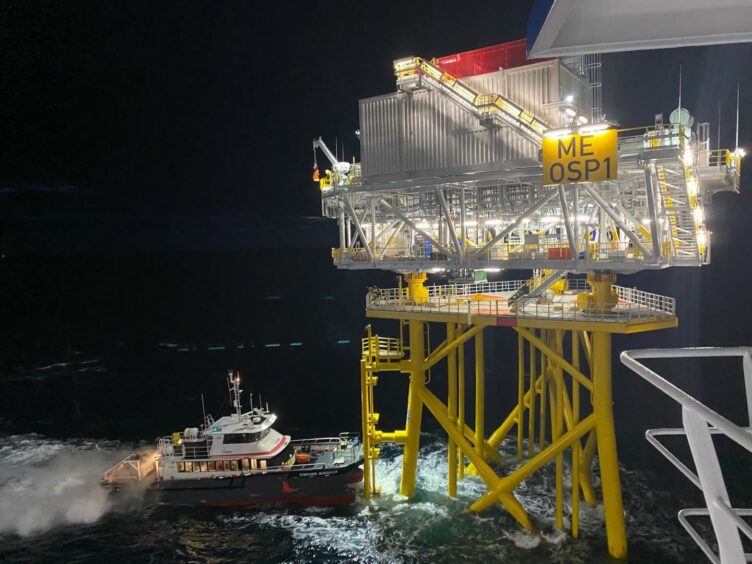
The UK’s offshore wind bid rounds are “far more crazy” than the zero-subsidy offerings in Germany, Grzegorz Gorski, COO of Ocean Winds said yesterday.
Speaking at a BloombergNEF event, Gorski said UK bidding rounds had seen “crazy bids”. Winners in the UK will “have to pay per year until” they reach a final investment decision (FID), he said.
“BP is paying half a billion pounds per year” on its 3 GW commitment. “It will take not less than six years, although they say it will take four. No project has been developed that fast,” Gorski said.
Oil companies, paying to enter the fast-growing wind market, had driven bidding in Round 4 of the Crown Estate sale, the executive said. Other companies that had more experience, such as Equinor, had not adopted such a high-risk approach.
Despite the high prices, Gorski was confident that the projects would go ahead.
“Auctions should not be designed to maximise the price,” he said. Rather, governments should increase the supply of opportunities. This approach would allow more sustainable business to develop.
Gorski compared the UK approach with Germany. TotalEnergies and BP agreed to pay more than 12 billion euros for 7 GW of offshore wind concessions at a sale in June.
Supply chain squeeze
Morten Dyrholm, global senior vice president of Vestas Wind Systems, said pressure to cut costs had become excessive.
Manufacturers had “made a mistake” in allowing policy makers to “scrape as much value out of the industry as possible. We have to insist on value we can deliver.”
Dyrholm also called for a pause in terms of technological change. While wind turbines are getting bigger, there has been no chance for the industry to recover its investments.
“We have to make an effective supply chain and not just impose unbearable costs. The arms race has to pause for us to have an efficient supply chain offshore,” the Vestas official said.
The Ocean Winds COO also discussed the company’s decision to pull out of offshore wind projects in the US.
“There is a contract termination problem in the US East Coast,” he said. Gorski said the industry was suffering from a lack of indexation for long-term offtake contracts.
“The best solution for consumers is to index”, he said, which would provide coverage for risks such as materials and interest rates.
Moray moves
Commenting on why the Moray West project, northeast of Scotland, was moving ahead, Gorski flagged up some areas of interest.
Only one third of the project’s capacity was backed by contracts for difference (CFD). Commercial agreements cover the other two thirds, he said, with Amazon and Google.
Another area of difference was the speed of execution. “We started construction immediately after the award, while others started contracting after the award.”
Recommended for you

